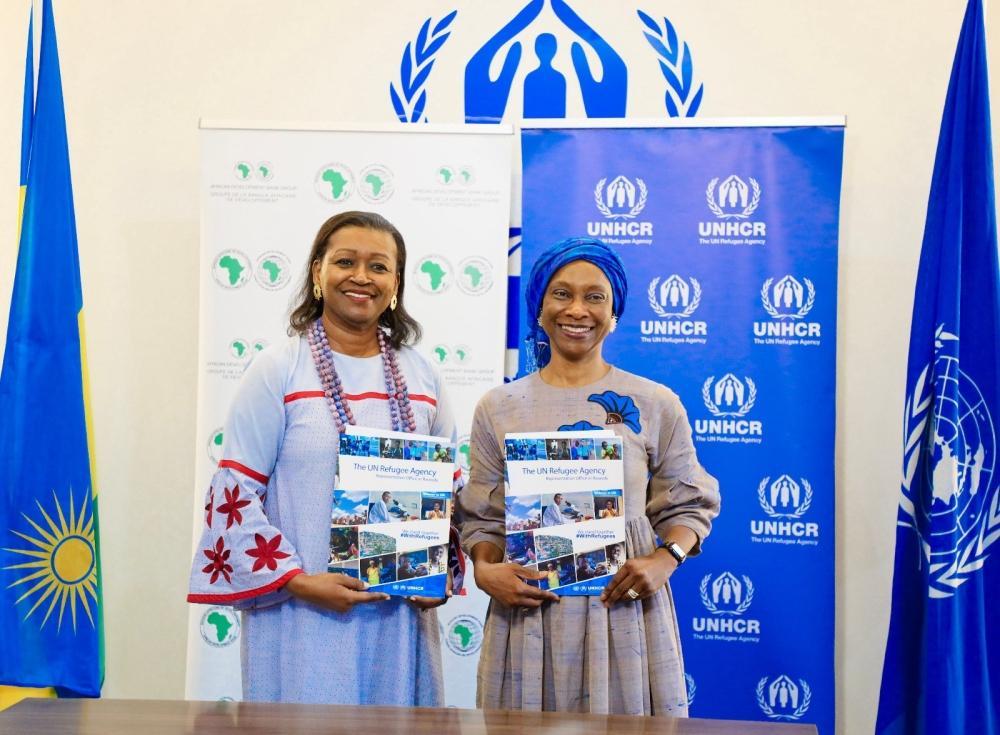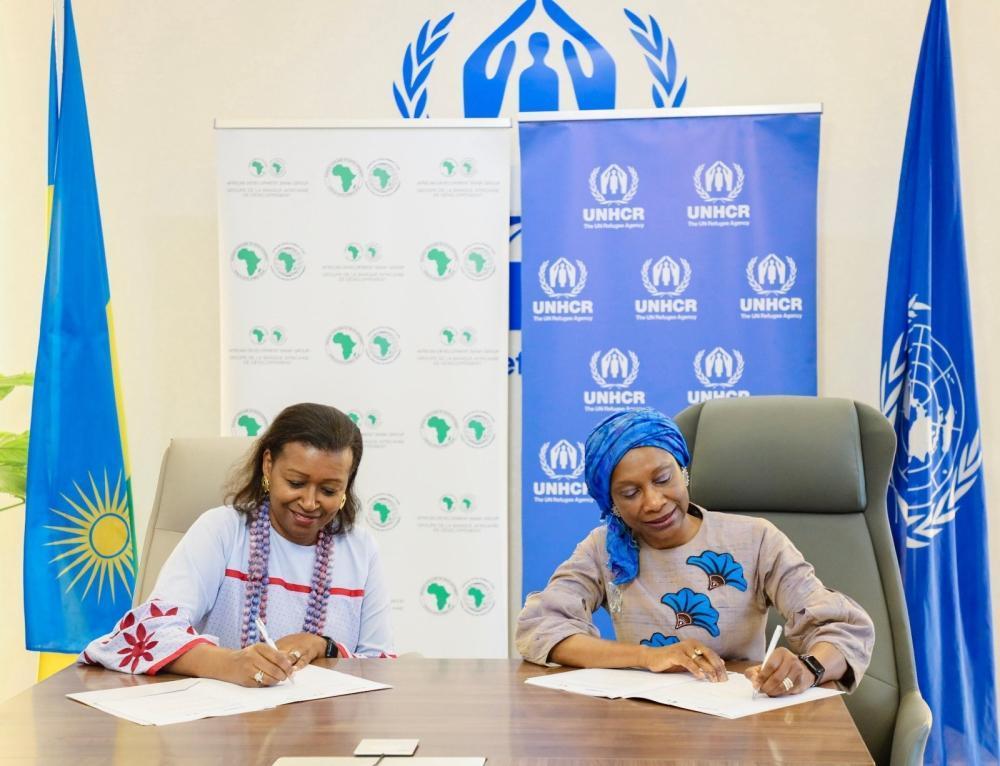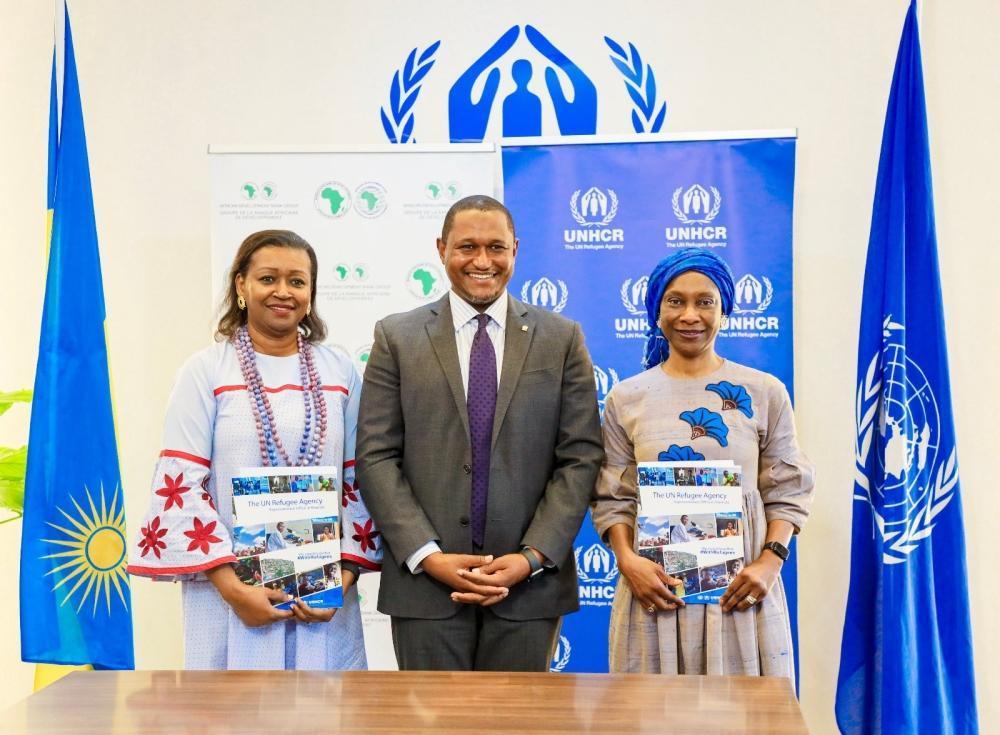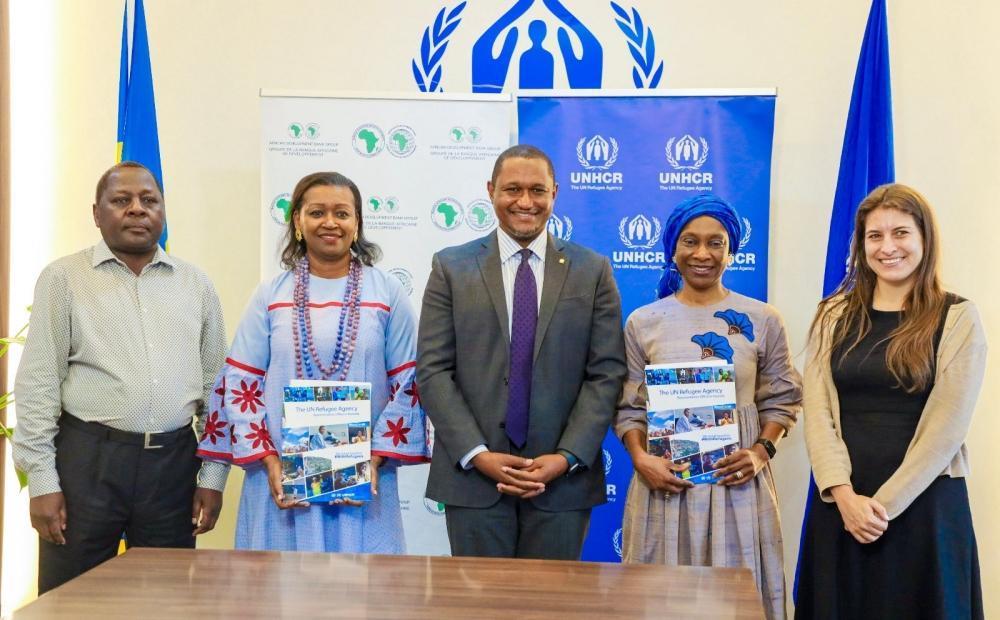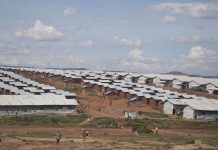Africa-Press – Rwanda. The United Nations High Commissioner for Refugees (UNHCR) and the African Development Bank (AfDB) have signed a Joint Country Action Plan for 2025–2027 to advance refugee inclusion and self-reliance in Rwanda across key sectors.
The joint plan signed in Kigali on Monday, August 25, aims to integrate refugee needs into national development efforts, reinforcing the humanitarian–development nexus and aligning with Rwanda’s national priorities and the objectives of the Global Compact on Refugees.
The plan outlines strategic cooperation in key sectors, including energy advocating for refugee inclusion in national energy grids and clean cooking initiatives.
UNHCR and the African Development Bank (AfDB) have signed a Joint Country Action Plan for 2025–2027 to advance refugee inclusion and self-reliance in Rwanda on August 25. Courtesy
In the Water, Sanitation, and Hygiene (WASH) sector, refugee settlements will be integrated into national water systems and sanitation infrastructure.
In the transport sector, connectivity will be enhanced in refugee-hosting districts to improve access to services and markets.
Economic empowerment efforts will focus on expanding livelihood opportunities and improving access to finance for refugees.
In the education and skills development sector, the plan will support inclusive education and vocational training for both refugees and youth from host communities.
The agreement aims to integrate refugee needs into national development efforts, reinforcing the humanitarian–development nexus and aligning with Rwanda’s national priorities.
The plan also supports Rwanda’s Sustainable Refugee Graduation Strategy for 2025–2030 and the Government’s vision for transformative refugee management, in line with the second National Strategy for Transformation (NST2).
Ndèye Aissatou Masseck Ndiaye, UNHCR Representative in Rwanda, expressed appreciation for AfDB’s leadership and commitment to inclusive development.
“This partnership is instrumental in advancing durable solutions for refugees while strengthening resilience and self-reliance in host communities across Rwanda,” Ndiaye was quoted as saying in a joint statement on Monday.
“By investing in refugee-hosting areas and championing resilience together, UNHCR and the African Development Bank are helping turn displacement into an opportunity for inclusive and sustainable development,” she noted.
Aïssa Touré Sarr, AfDB Country Manager in Rwanda, reaffirmed the bank’s commitment to ensuring refugees are included in Rwanda’s development agenda.
“The African Development Bank is proud to strengthen this collaboration with UNHCR and the Government of Rwanda,” she said.
“By mainstreaming refugee inclusion into our investments, we are not only improving lives but also advancing Rwanda’s vision of integrated, resilient, and sustainable communities.”
The organisations said the partnership builds on the respective experience and expertise of UNHCR and the AfDB in international protection and development, channelling their shared commitment to support the Government of Rwanda in its transformational approach to refugee response.
As of December 2024, Rwanda hosted about 135,000 refugees, most of whom live five camps across the country, according to the UNHCR. The majority of them come from DR Congo and Burundi.
The joint plan signed in Kigali on Monday, August 25
For More News And Analysis About Rwanda Follow Africa-Press

